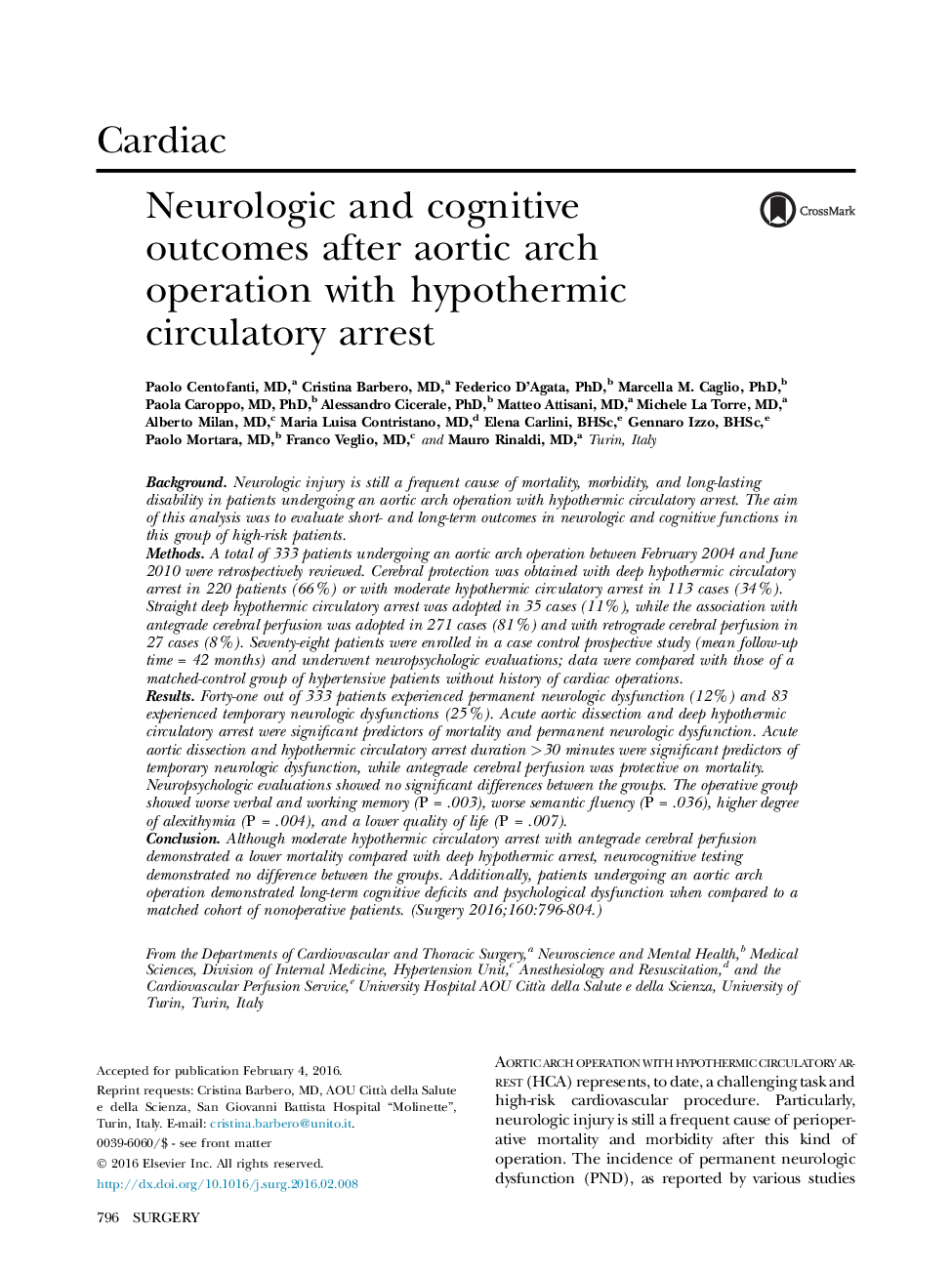| کد مقاله | کد نشریه | سال انتشار | مقاله انگلیسی | نسخه تمام متن |
|---|---|---|---|---|
| 6254918 | 1289216 | 2016 | 9 صفحه PDF | دانلود رایگان |
BackgroundNeurologic injury is still a frequent cause of mortality, morbidity, and long-lasting disability in patients undergoing an aortic arch operation with hypothermic circulatory arrest. The aim of this analysis was to evaluate short- and long-term outcomes in neurologic and cognitive functions in this group of high-risk patients.MethodsA total of 333 patients undergoing an aortic arch operation between February 2004 and June 2010 were retrospectively reviewed. Cerebral protection was obtained with deep hypothermic circulatory arrest in 220 patients (66%) or with moderate hypothermic circulatory arrest in 113 cases (34%). Straight deep hypothermic circulatory arrest was adopted in 35 cases (11%), while the association with antegrade cerebral perfusion was adopted in 271 cases (81%) and with retrograde cerebral perfusion in 27 cases (8%). Seventy-eight patients were enrolled in a case control prospective study (mean follow-up time = 42 months) and underwent neuropsychologic evaluations; data were compared with those of a matched-control group of hypertensive patients without history of cardiac operations.ResultsForty-one out of 333 patients experienced permanent neurologic dysfunction (12%) and 83 experienced temporary neurologic dysfunctions (25%). Acute aortic dissection and deep hypothermic circulatory arrest were significant predictors of mortality and permanent neurologic dysfunction. Acute aortic dissection and hypothermic circulatory arrest duration >30 minutes were significant predictors of temporary neurologic dysfunction, while antegrade cerebral perfusion was protective on mortality. Neuropsychologic evaluations showed no significant differences between the groups. The operative group showed worse verbal and working memory (P = .003), worse semantic fluency (P = .036), higher degree of alexithymia (P = .004), and a lower quality of life (P = .007).ConclusionAlthough moderate hypothermic circulatory arrest with antegrade cerebral perfusion demonstrated a lower mortality compared with deep hypothermic arrest, neurocognitive testing demonstrated no difference between the groups. Additionally, patients undergoing an aortic arch operation demonstrated long-term cognitive deficits and psychological dysfunction when compared to a matched cohort of nonoperative patients.
Journal: Surgery - Volume 160, Issue 3, September 2016, Pages 796-804
